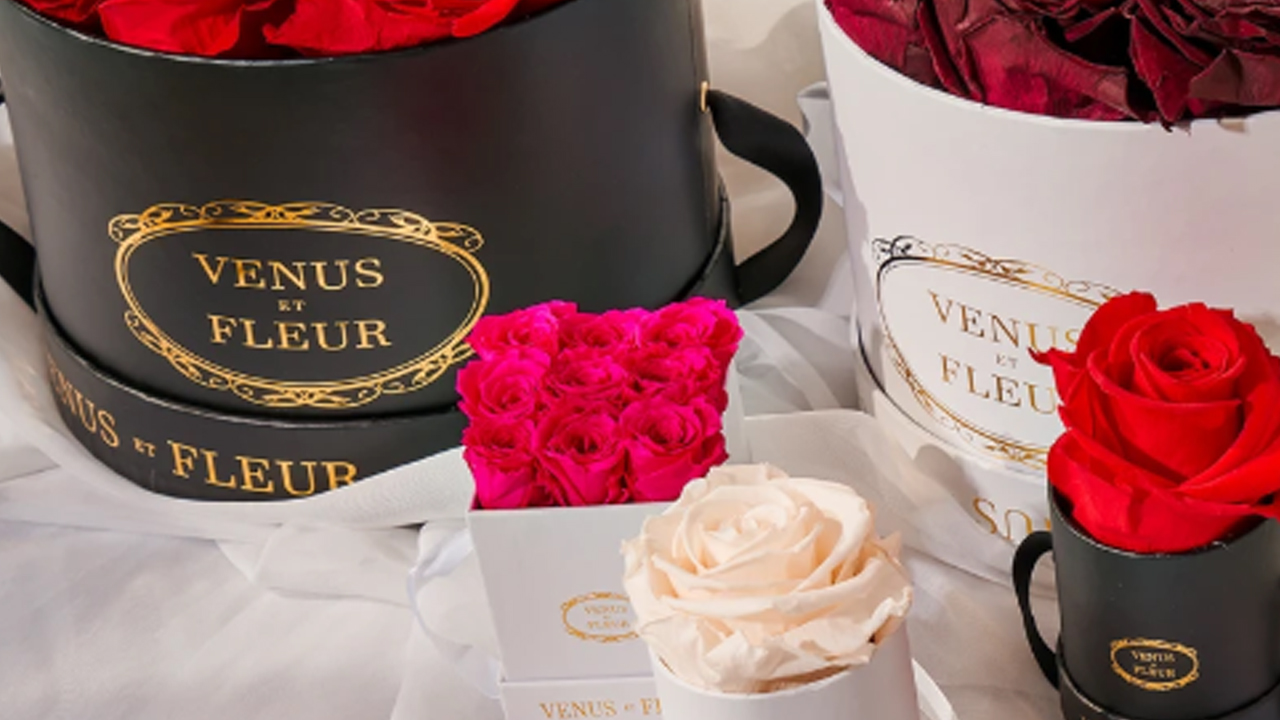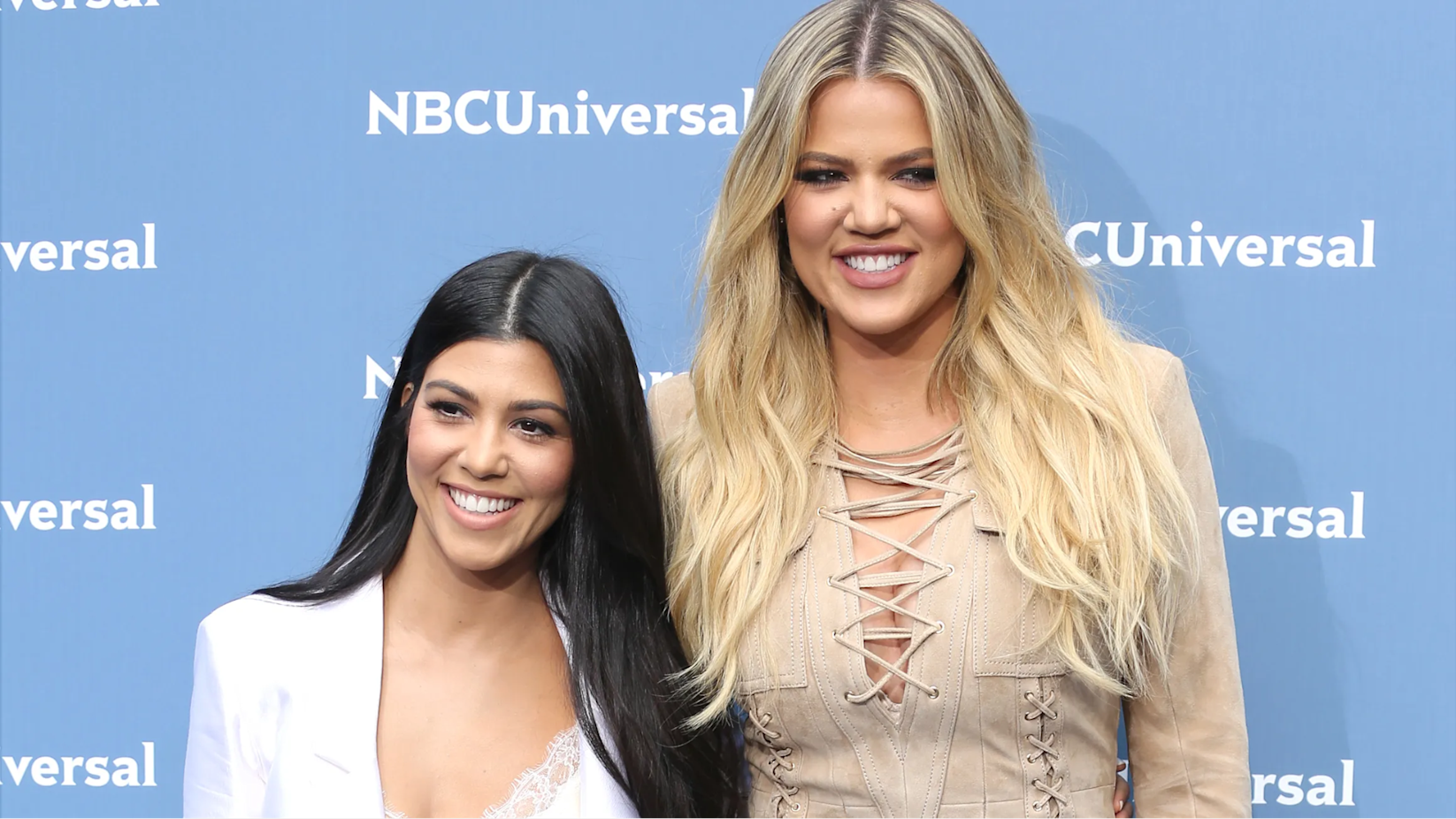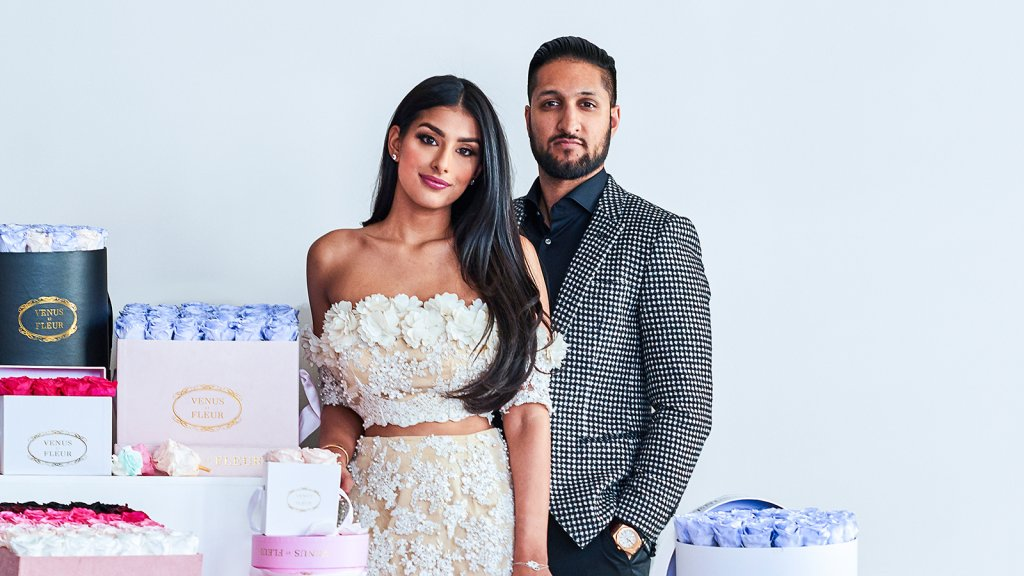If you have spent even a minute of your life on Instagram, you likely know the products ofVenus ET Fleur, whose eternity roses—the famous bouquets that stay fresh and keep its smell for up to a year without water—are posted and hashtagged about often in the loftiest, most chic corners of the platform.
The coveted aesthetic behind the company comes from the mind of Seema Bansal, an impossibly kind and humble woman who, in 2018 at just 26, wasnamed to Forbes’ 30 Under 30 listalongside Sunny Chadha—her husband and Venus ET Fleur's co-founder.
From her home in Los Angeles, Bansal discusses the do’s and don’ts of styling products on Instagram, what boundaries to set when you work with your husband, and how to survive what happens to a young business when the Kardashians post about your products. “Everybody wants the recognition, and for us, that was a really huge goal,” she says. “But what we didn't think of was the supply chain. Can we actually fulfill these orders?”
(This interview has been edited and condensed for clarity.)
How is a business selling premium flowers across the world doing right now?
Bansal:When COVID first hit, we were really, really scared, because you don't know what to expect. And given that our products are luxurious and don’t meet a need, we were really nervous. But what happened was, because there was the lockdown, people weren't able to see each other to celebrate each other. So we did see a demand in floral delivery.
We also have florals that last up to a year, so we had a lot of stock, whereas a lot of other brands were unable to bring in florals from South America. That really helped us deliver to the consumer.
That being said, we noticed that the consumers were really trying to make people feel comfortable. They weren't able to go to birthdays. If there was an anniversary or a gender reveal or a baby being born, we were seeing a lot of messages in the cards that said, "I'm so sorry I'm not able to be there for this, this, and this. Sending you love." It was really heartwarming.

At the start of your company, in 2015, you're building something, and you're still getting your feet under you. But what happens to Venus ET Fleur on Instagram around Valentine's Day 2016?
Bansal:(Laughs) Actually, this is my favorite story, just because it was so surreal. We were really doing everything from the beginning. I was making the flower arrangements in my flex apartment in midtown Manhattan, where I'd go to the floral market at 5 o’clock in the morning, pick up all the flowers, cut them, clean them, make sure everything was perfect, make the arrangements, and Sunny would deliver them.
When it was Valentine's Day 2016, we had a few more drivers, but really it was still very much us in the day to day. I was running the Instagram account, so I would post everything, do all the captions and hashtags, and do all the outreach. And I was in contact with someone from the Kardashian team a few weeks prior just to send them our products.
从来没有在一百万年我认为瓦伦tine's Day, out of all days, Kourtney and Khloe Kardashian (pictured below) would share a static feed post of Venus ET Fleur [on Instagram]. And really what came from that was recognition. We got a ton of new followers. And I remember the phone would not stop ringing. The emails were pouring in. People were knocking on our office door because that's where our little showroom was, as well, in Chelsea. Just a lot happened within that hour of them posting. It was really special.

What is the true ripple effect something like that has on a young business?
Bansal:Well, I think that everybody wants recognition, and they want to be seen in front of a lot of eyeballs. And for us, that was a really huge goal. But what we didn't think of was the supply chain. Can we actually fulfill these orders?
When [the Kardashians] posted, our website was sold out. We didn't have inventory. We really could not capitalize on that special moment. And for any business, that's pretty terrible, right? Because you want these people to come to your site and convert, and that wasn't happening for us.
So the first hire we brought in, outside of Sunny and me and our other team members, was a supply chain [manager]. We brought him in to help us streamline the process of bringing in flowers and project what we were going to buy and fulfill. He streamlined the entire process because, for Sunny and me, that isn't really where our expertise lies.
The flowers in your arrangements are objectively beautiful, so it's no surprise that Instagram was the channel by which Venus ET Fleur really took flight. Your company uses an in-house influencer strategy to leverage Instagram. How does that work?
Bansal:Ourinfluencer strategyand the influencer world has really grown in the last five years. When we started, it was really just reaching out to folks that we thought were like-minded and would want to share with their audience.
Now, where we're headed is that we're having our influencers celebrate milestones with their followers. Maybe they’re engaged, or they're having a child, and they're celebrating these really special moments, or they just bought a new house and they want to decorate it and share how to utilize our products throughout their space.
Influencers are your other voice. They're helping you spread the message to their like-minded audience. And they're creating content for you that you can use for your brand, as well. So I think it was a natural platform for us. Another way of marketing was really spending the dollars and getting a really great team in house to build a program for our influencers.
As specific as you can be, what are the do's and don'ts about styling and showcasing products on Instagram?
Bansal:Less is more. Especially if you're focusing on selling your product, you really want to highlight that product. So make sure your lighting is good. I don't think a white background is for everything. Try to change it up a little bit, but make sure the lighting is good, that the product is well showcased.
For us, branding is so important to showcase. So I would always make sure the frame was showing both logos, from the lid to the logo on the actual box, and you're actually able to see the florals.
Don't have too much stuff in the background. And for us, if there is a person or a human element, having hands in there has always been something that's been special because people connect hands or human elements to themselves. They can see themselves having that product or can see themselves being in that image.
In addition to the creative, you certainly have learned the ropes relative to best practices on promotion and engagement with your customers through social media. What are the key things you’ve learned about successfully using Instagram as a platform for your business?
Bansal:It's the front-facing tool for your business, so people can see in real time what you're saying to customers and what is really happening. If a customer is posting on Instagram and they have an amazing experience, are you commenting back? Are you in communication with them? And on the flip side, if there isn't a great experience, how are you handling that? Are you in communication with the consumer? Are you bettering this experience or are you staying silent?
利用该平台的优势。确保你的re always in touch with your customer. For us, we're a luxury service, and we want everyone to feel special. And I think that's why people buy luxury products—they want to feel special. But that comes with service, as well. You have to make sure that the service is tailored to that customer and that they're coming back. And if they didn't have a great experience, how are you going to fix that? Make sure that you're using Instagram for the communication aspect of it, as well.

You've said before that the key to working alongside your husband is to "set boundaries." What boundaries do you and Sunny set with one another at the company?
Bansal:When we first started the business, we were also newly dating. So it was kind of like, how are we impressing each other? What can I handle? What can you handle? And then pretty quickly we realized that we can't keep jumping over each other. We need to really set boundaries, set responsibilities, and own our own departments. Of course, we're always there for each other to help each other, but it was really important that we owned our own space so that we could feel like we were the owner of that portion.
The challenge when you have a co-founder, or at least from what I've heard, is that sometimes they're stepping on each other's toes. And that was something that we just did not want for our relationship or our business.
Early on, I took on more of the product development, because that's really where my strong suits are, as well as creativity and branding. And then Sunny took over more of the operation end of the business: shipping logistics, supply chain, and retail. He's really on that side, the back-end side of the business, and I'm definitely more of the front-facing side of the business.
We just work really great together. We respect each other. It’s really important in your business that you respect each other's decisions and you actually listen to each other and come to a conclusion that works.
What would you say has been the biggest disagreement you two had on something in the business?
Bansal:(Laughs) It's so funny, but we—my whole team, my creative team—always talks about how everyone wants to jump into creative and give their opinion on what they think looks good. And I think Sunny has brought up his opinion on what he thinks could be done better. Like, "Oh, I would not shoot that product that way." Or, "I don't think we should launch this."
And it's so funny because those products that he disagrees against are the ones that end up really doing well. So he always says, "I'll give you my opinion, but I know it's probably not right." (Laughs)
In an interview with Forbes from 2017, you conceded that in the early days of Venus ET Fleur, you might've had a little trouble delegating responsibilities and letting go of control of things at this business that you built from scratch. But then later, in an interview you gave to Harper's Bazaar in 2019, you noted how your leadership efforts had improved—that you'd developed a strong trust with your team to make their own decisions.
What steps did you take to get there with regard to being hands-on or hands-off in your management style?
Bansal:Trusting your team is number one. You hired them for a reason. You brought them on board to assist you in a part of the business that you need help in. So you do need to give them some wings so that they can fly and do what is needed for the company.
For me, the delegation at the beginning of the business was really hard because, especially with social media, it was just so hard for me to let go because it's front facing, it's consumer facing and I really wanted to make sure everything was perfect. Being on the sidelines was a little difficult for me. But as I started giving my team more legroom to do what they needed to do, I saw that they were able to handle it much better than I could.
My management style and my leadership style has definitely evolved. And I'm more of a collaborator. I like to listen to everyone's opinions and thoughts. And I like for us to come to a conclusion together because I don't have all the answers. And I think that [listening] is sometimes a challenge for a lot of people in leadership roles, as they think that they know how everything needs to go.
And that's not always true. You do need to listen to your team. They're the ones in the weeds of it. They're in the day to day. They know how things should be.
A lot of your products tend to sell out, and indeed some new collections sell out quickly. On the one hand, in the short term, you don't sell as many products as your customers clearly have the appetite for. On the other hand, you can make the case that by creating this air of scarcity, it of course drives business for the long term. What is the substance of conversations you and Sunny might've had about this idea of the demand for your products?
Bansal:Going back to 2016, we didn't have inventory. We sold out and that built a crazy demand that we weren't able to actually capitalize on. And then over the next few peaks that we would have, we would run into the same sort of issue where it was more of a planning problem. We definitely had the demand, but we weren't also planning at the same time.
Now, in the last few years, we definitely have been planning properly, but the demand is still there. And sometimes it's very hard to keep things in stock, and people really want the best of the best. There's this level of exclusivity and then also the side of making sure everybody is able to obtain your product. So I think there is a balance.
Do you get the sense that there is a world where a sell out—not being able to fill all those orders or meet all those customers—is actually not the worst thing for the business?
Bansal:For a business owner, all you want is to sell, sell, sell. But absolutely I think exclusivity keeps you relevant, and people are excited when they can't really get their hands on something. It makes them want it more. So I guess it's, again, a balance of both. You want to be able to sell everything, but then there's that other element of making sure things are relevant.
You and your husband werenamed to the Forbes 30 under 30 listin 2018. There's no question that other companies and founders looked toward you and Sunny at that time and began to more seriously aspire to reach your level of success.
Let's flip that thinking on its head here for our last question: When you look out into the marketplace at all the other brands that operate in your direct-to-consumer space, which company stands out as the model for the level Venus ET Fleur wants to reach next?
Bansal:I admire so many brands and founders, but a brand that I think is doing things really well and in a very interesting way isKith. They've really revolutionized the streetwear world and made collaborations and unisex clothing very cool and relatable and exciting.
I thinkRonnie Fiegis a genius. He's doing things so well. And so I think Sunny and I both really do look up to the way he's modeled his business. He's done an amazing job with Kith and I love the creativity behind everything. Everything is designed immaculately and really thought out.






